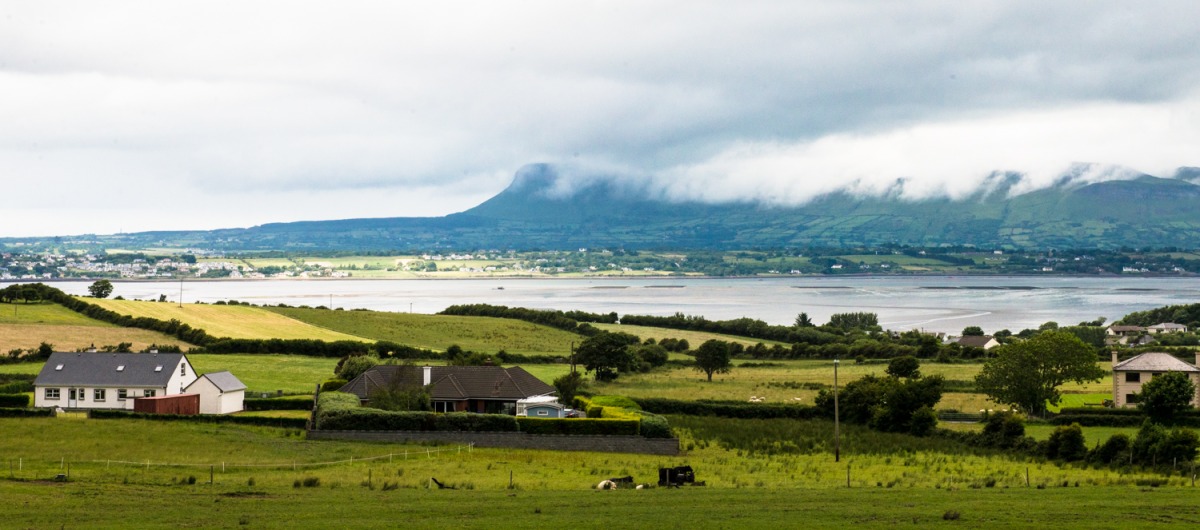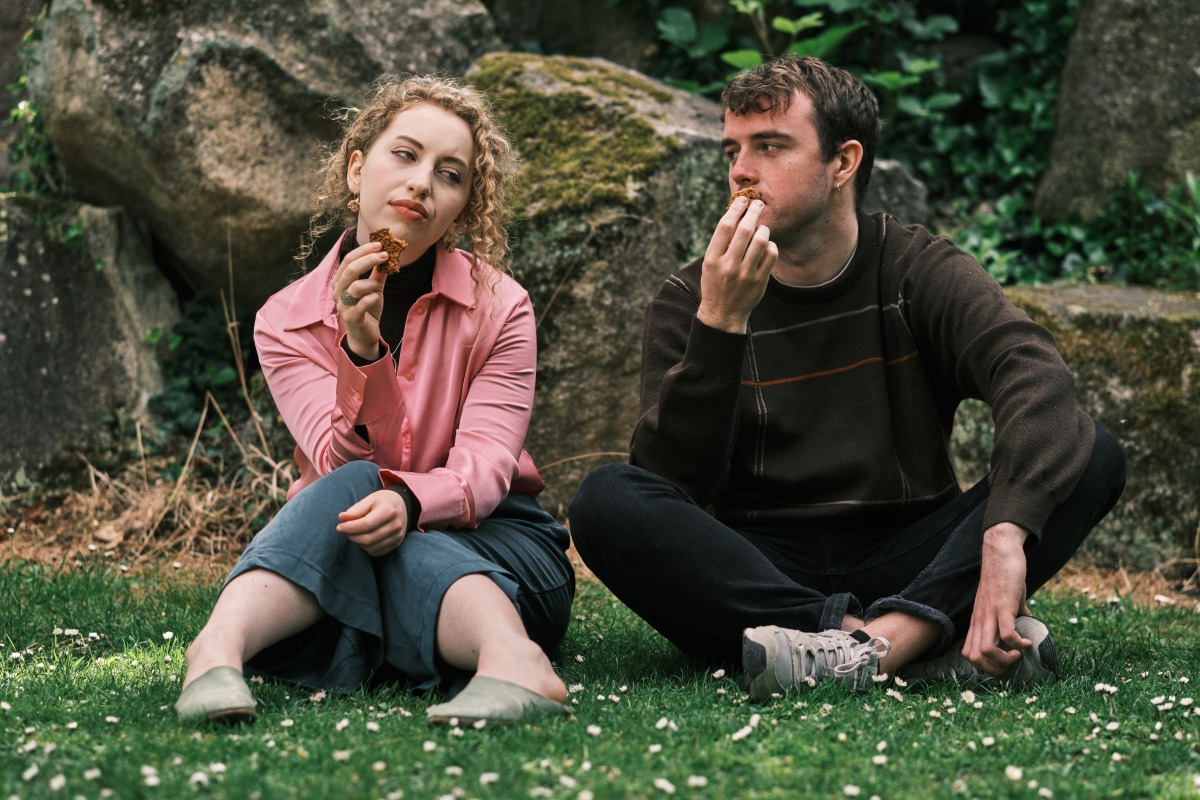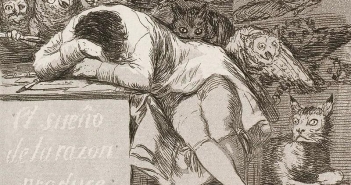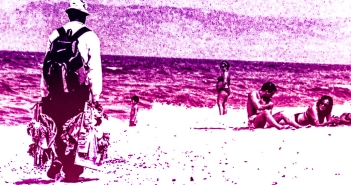‘We dream – it is good we are dreaming –
It would hurt us – were we awake –
But since it is playing – kill us,
And we are playing – shriek –‘
‘We dream – it is good we are dreaming’
Emily Dickinson
There are quite a few things in life which I deem to be frankly repulsive – cancer, world hunger, terrible Twitter takes, right wing politics, capitalism et cetera but truly the worst thing of all is when a writer writes about their own work. So please forgive me, dear wonderful reader, because I’m about to do just that.
It Is Good We Are Dreaming runs from May 31st – June 11th in the New Theatre here in Dublin. It’s the first in person play from a new emerging queer theatre company called LemonSoap (yes, we’re James Joyce fans) of which I am delighted to be a member.
The play explores the relationship between two estranged siblings, Fionn and Fiadh. Unexpectedly one morning Fionn arrives at his elder sister Fiadh’s house and over the course of a morning they end up discussing everything from the man made of rock their mother fell in love with, the nature of inheritance, the ecological collapse of our world, Just Dance on the Wii and their respective love lives.
It’s a strange little play about family and Irish mythology and how difficult it is to live in Dublin city and I’ve realised over the course of writing and rehearsing this piece that there were three impulses behind it’s creation. Three thoughts I wanted to think through in a play and of course being a writer of an utmost writerly disposition I find I do my best thinking while pretending to be someone else inside a literary framework of my own creation and so a play was born. See! Writers writing about their own work is horrific!
Banker Ben Hoey identifies a solution to the #housing crisis to level the playing field between institutions and individuals paying over the odds on mortgages.https://t.co/rsw0UPoWCe@broadsheet_ie @beny987 @BowesChay @paddycosgrave @RoryHearne @VillageMagIRE #generationrent
— CassandraVoices (@VoicesCassandra) October 6, 2021
Existence
I have been thinking a lot recently (while pretending to be someone else, obviously) about living at a time when it feels like the world is ending. I can’t put my finger on when it became a part of my daily existence to wonder about these things – worlds ending, civilisation collapsing and the like.
Maybe the pandemic, the recession, the wars or too much time during lockdown to bake brownies and stare at myself. But I think about them, the end of the world as we’ve known it, a lot now. Probably to an unhealthy amount really but then I am a writer so hopefully people (you) won’t call me crazy but rather contemporary or finger on the pulse or some such and I’m not a fan of doomsday talk in general really but my god how can you avoid it at this rate?
I’m always it would seem thinking about Mary Robinson’s righteous anger and tears at COP26 or the rise in anti-LGBT hate across the globe or how there’s months left to avoid mass extinction events or how it seems the slow march towards oblivion for us doesn’t seem like it can be avoided anymore and I’ll tell you a secret: I lied earlier.
I can put my finger on when Armageddon thoughts became daily daydreaming for me and it was while writing this play. Which is hilarious! But true. Existential despair caused by playwriting. I betya Beckett and Caryl Churchill would say the same thing. Well, I hope they’d say it anyway because that would make me feel better.
With this show, I wanted to write about a brother and sister who have a frank and honest conversation about how to continue to exist in the world right now, how to push on and live and love despite the creeping sense that the life we’ve been sold, the life our parents and grandparents and great grandparents were able to afford, more than likely may never come true for us.
Our two characters, Fionn and Fiadh, find very different ways to deal or not to deal with the dying of the light. Fiadh’s decided to learn to actually like oatmilk, to buy a pair of wellies and a gas mask too.
Fionn’s taken to railing against the world and struggles to come to terms with the gross unfairness of it all and throughout the play we see these two siblings clash up against eachother as they attempt to navigate and explore their own relationship and the world around them.
This is a play with two characters under the age of thirty at its heart and I’m excited and terrified to see how people, particularly older people, respond to the conversations these two are having. Conversations which firmly reflect the ones I am having with my peers, us much maligned Generation Zs.
Questions about existence and living and climate collapse and how we emerge into and are meant to thrive when the notions of thriving we’ve been force fed are actually literally contributing to the world’s dying.
While I don’t think literature can solve the climate crisis or housing crisis or stem the rising tides of inequality, I do think what it can do is provide voice and space to those concerns and provide some much needed catharsis for those of us who need it. That’s what, amongst other great things like funny and riveting and not boring, I hope this play is. A rumination on existing.
Martin Mackie's new album considers the Irish relationship with booze. One song was inspired by a weird dream or maybe an hallucination about Christy Moore…https://t.co/FOMTrBj9Py@broadsheet_ie @BowesChay @BenPantrey @danieleidiniph1 @MusNetIrl @christymoore45 @johncreedon
— CassandraVoices (@VoicesCassandra) May 23, 2022
Inheritance
I am always and forever fascinated by how we as people are defined by what we inherit. How it’s written in our bones really from birth some things about us that we maybe in ways can’t really escape.
There are countless studies out there about how traumas can be inherited from our forefathers and they all are eminently debatable and fascinating and so with It Is Good We Are Dreaming I set out to try and explore what can be inherited in many little ways. In the play we hear whispers from Fionn and Fiadh’s mother coming from the walls. She whispers bed time stories which the two siblings would have heard growing up, each of them with a decidedly Irish mythological bent to them.
Their mother, played in a voice over role so mercurially by Fionnuala Murphy, is a complex enigmatic figure who spent her life chasing after the ghost of a man made of rock. She’s someone who in very many ways slips in and out of our known world and into another and the play explores the myriad ways in which that’s defined and repulsed her two children.
Fionn and Fiadh too are half siblings, joined together in life by the mother they share. They were raised separate to one another, Fiadh raised by her father and Fionn by both his Mam and Dad. Because of that they come from very different material backgrounds. Fiadh was raised in a wealthy suburb and went to a private school while Fionn was raised in a working class environment and has had to work to put himself through college.
I wanted to see in this play what happens when you place two people, two siblings, born into very different material circumstances together and how their difference in circumstance and class would manifest itself throughout.
Class is something I don’t think is often represented enough or interrogated on Irish stages. We either see families falling apart in wealthy suburbs or peasant farmers from Donegal or Kerry fighting over land, rarely in Irish theatre do we see examinations of the material reality of class and how it impacts us today.
With this play, I wanted to explore the subtle ways in which our class defines and differentiates us. These are two characters bashing up against each other who have inherited many different things from their families and the world around them. Their socio-economic status or a mother who dreams of another world or a planet riddled and rank with issues near even beyond their comprehension.
The weight of history and family and their inheritance sits in this room with these two siblings and in ways they escape, subvert and succumb to that which they’ve had no choice in being given.
F. Scott Fitzgerald wrote that we are all boats, borne back ceaselessly into the past. I’d like to think we are more than what came before us or at least that if we want to we can escape it. But I don’t know really and so I felt wrestling with the role of inheritance in our lives would be worthwhile subject for a play and I hope you’ll think so too.

Image (c) Daniele Idini.
Myths and Legends
In case you haven’t noticed by now I am really fascinated by intergenerational trauma and the ecological collapse of our world. But what really and truly set me off on writing this play was the idea that it would in its way explore the vast array of rich and crazily original Irish mythological stories, legends and fairy tales which underpin this island we live on. We know the stories, we’ve read many of them as kids.
The Children of Lir, Tir Na nOg, The Giants Causeway and The Fianna. We know of them as children’s stories but when you begin to discover just how rich and detailed and earthy and ethereal these Irish legends are you won’t be able to get enough of them. I wanted to capture the essence of the mythology of our Island and infuse it with this play and so it became about a mother who lives in the mythological realm and her two children who sit in the mundane one reaching out for the mythological, reaching out for her.
It became a play about two siblings puzzling through the enigmatic myths and legends their mother told them. Stories of the man made of rock she fell in love with. The crystal fish that float in the sky. The person in the attic saying prayers late at night. The four swans taking flight.
I think sometimes we are afraid in this country of the stories our ancestors told. I think that’s probably colonial and also the fault of the church who stole a lot of those stories to make saints.
Yeats and Lady Gregory however brought our stories and our mythologies so vibrantly onto the stage with their Celtic revival in the early 20th century and today Marina Carr with her extraordinary body of work explores Irish and Greek mythologies with startling insights. But by and large we shy away from our legends, we leave them as stories to be told to kids and that’s it. I think they are too rich, too complex, too full to the rafters with brilliance to be hidden away because of some post-colonial theocratic embarrassment.
So I’ve stuffed this play to the gills with obscure references. To the Children of Lir, the Fianna, Diarmuid and Grainne. To the Gods we worshipped once and the peoples our ancestors would say came to this land before us. In It Is Good We Are Dreaming the mythological joins us at the kitchen sink. It whispers from the walls in stories told by a mother who has always had one foot in either world.
The image of Ben Bulben looms large over this play, which in our mythology is said could act as a gateway to the other side. The third and final impulse for this piece was that it must be epic yet tiny in scope, it must be a naturalistic drama where the mythic bleeds in to warp and distort, it must pay tribute to the legends our ancestors gave to us while forging new ones that Fionn and Fiadh tell one another. It must be a play that in many ways is hard to define.
A slippery complex piece about family and myth and climate change and more. And I think, dear reader, you probably have most of all gotten the impression that this play is hard to define after all of my ramblings. But that’s why you should come see it. To define it for yourself.
One last thing. The title of this play, as you’ve probably noticed, is taken from the above quoted Emily Dickinson poem. I chose the title because I believe it’s a perfect encapsulation of in the end what this play is aiming to be. Because despite the many horrors of life right now, despite the inheritance that defines us or haunts us or the crises that besiege us, we continue to dream. We have to.
To hope for better. To hope for change and for beauty and for joy. To dream so that all the future generations can too. It is good we are dreaming. And despite all that awaits us and the portents of doom ahead we can’t lose it, we mustn’t. Because even if everything else leaves us, we’ll always have and we always will be dreaming. And despite everything, I think that’s really beautiful.
Feature Image: Laoise Murray as Fiadh and Luke Dalton as Fionn. Photo by Owen Clarke




